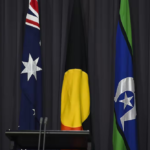Is Australian sport really in crisis?
Professor of Sport and Media, Steve Redhead, unpicks the recent ACC report on drugs and corruption in Australian sport, while shedding light on an even greater international issue that, for years, has been ignored.
The recently released Australian Crime Commission (ACC) report on the use of performance enhancing drugs and match fixing in Australian sport is seen by many as unveiling the largest scandal in our Nation’s otherwise very proud sporting history. But there are plenty of people who wish it would just go away as quickly as it arrived in the global media inbox. The report will now be acted on by the Federal government, senior police, governing bodies of various sports, and clubs themselves.
Multiple criminal offences have been committed according to ACC, but much like the European soccer match fixing scandal reported earlier this month by Europol, it is hard to predict exactly how many people will be disciplined by the codes and how many will find themselves prosecuted in court. What is clear in the Australian case is that a nation devoted to excellence and fairness in sports industries is looking long and hard at itself as it digests what the media says is ‘the shocking truth’ that has suddenly been revealed.
The ACC report, in the long run, has implications for all codes and potentially many participants and recent matches or events. One of the outcomes of the report may well be to look at BOTH the question of performance enhancing drugs in sport and match fixing/gambling. These two issues, which were seemingly separate problems, have been linked together by the ACC report. Organised crime is said to be involved in both problems. There is also the question of the use of illegal recreational drugs by sports people (like ecstasy or cocaine) which, when supplied by gangsters, allows organised crime to get into a position to influence match fixing through blackmail of players and officials. Gambling debts by players and officials is another issue which organised crime regularly exploits.
The response to the ACC report has been typically confused. The clamour for clarity and naming names is understandable but there is an undercurrent of scepticism – that the report does not uncover any real systemic problem, but rather, merely focus on one or two bad apples (clubs and players) who can be quickly shamed and punished allowing everyone else to get back to normal.
What is certain is that regulation – by governing bodies of sport, state and federal governments, police forces, law officers, and sporting clubs – has been lax over many years. But this current scandal is not an Australian-only sporting crisis. This is an international problem where, in the neo-liberal era, light touch regulation and self-regulation have been the order of the day and systemic problems in sporting industries (like drugs and match fixing) have effectively been swept under the carpet.
Just as the lack of proper regulation of the international banking industry allowed the global financial crisis to befall the planet in 2007/8, the international sports industry risks reducing an exciting, compelling and passionate spectacle to a cynical exercise; losing millions of spectators and fans in the meantime.
Globalisation has meant the opening up of illegal markets – drugs in sport and match fixing are merely two very profitable avenues for international crime. The stereotypes of ‘Asian’ gangs being behind the match fixing are wheeled out once more, but there is considerable truth behind the rumours and we ignore these truths at our peril. Better regulation is going to be necessary for years to come as the unholy mess is cleaned up, in Australia and overseas.
Steve Redhead is an Adjunct Professor of Sport and Media in the School of Human Movement Studies at Charles Sturt University, New South Wales, Australia. He has held many Professorships around the world including posts at universities in Manchester and Brighton in the UK, Ontario in Canada and Perth in Western Australia. He maintains an international reputation for his work on accelerated culture, critical criminology, sport and sport media. Steve has also created and directed three research centres: the Unit for Law and Popular Culture, the Manchester Institute for Popular Culture and the Centre for Sports Research.













hughjackman
August 5, 2013 at 10:47 am
sports
Doping and match fixing issues very bad in any sports. It will destroy any game.